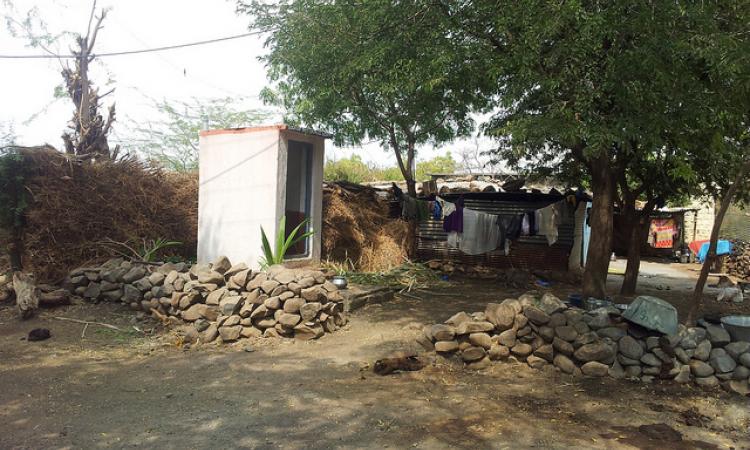
Sanitation has been a national concern for over three decades now. Ambitious government programmes and consistent awareness campaigns have made the issue of sanitation more prominent today than before; receiving heightened vocal support, both from politicians as well as the public.
The Union Government launched the Total Sanitation campaign in the last decade of the 20th century. It was later renamed as the Nirmal Bharat Abhiyan. As part of the Abhiyan, cash prices were offered to villages and blocks that achieved 100% toilet coverage. Many state governments followed suit and launched their own sanitation drives and incentives.
Maharashtra launched the Sant Gadge Baba Gram Swachhata Abhiyan (SGGSA) in 2000 and the Shahu Phule and the Ambedkar Dalit Wasti Swachhata Abhiyan (SFADWSA). The aim was to bring the community together to work for the cause of improved sanitation and hygiene in all districts of the state.
Sarola’s quest for sanitation
Sarola, a small village in Tuljapur block of Osmanabad district in Maharashtra woke up to the dream of total sanitation in the year 2006. An advertisement about the Nirmal Gram Puraskar caught the attention of a researcher who was visiting the village during his break. He discussed the possibilities of Sarola winning the prize with the local youth and elders.
With dalits making up close to 75% of the population, it was crucial to get them involved. The dalit part of the village, Bhimnagar, was relatively small and the group was hopeful about tidying it up.
The most direct benefits of cleaning up the village and putting an end to open defecation would be the health benefits. Freedom from malaria and diarrhea and the associated health related expenditure were the most prominent stimuli used to inspire the villagers to take up the broom. Also, the 1.5 lakh cash prize would be a welcome allowance to help spruce up facilities in Bhimnagar.
Drivers of change
After several rounds of consultations and negotiations, it was agreed that a nominal subscription would be collected from all houses to set the ball rolling. Contributions from Panchayat members and Panchayat funds in addition to financial incentives given by the government for below poverty line households were also used.
The youth got the village folk together and created committees to fast track activities. The sanitation drive in the village was enthusiastically inaugurated with a slogan and poster rally. Many came out in support with brooms in hand to beautify their neighborhoods. This helped galvanize those who had, so far, not paid much attention to the cause.
A local school Head Master who was closely watching the youth work explained to them that clean streets alone will not help them earn the ‘puraskar’; putting up functional toilets was of the essence, not just in Bhimnagar, but in the entire village. Soon, the fervent party realized that brooms and slogans alone would not suffice and came up with ways to involve people from other communities in the village.
A gram sabha meeting was called. Getting members from other castes to work together proved to be a challenge. But no challenge was too huge for the motivated gang. Periodic awareness meetings and persistent one on one meetings helped change attitudes, one member at a time. The Panchayat secretary, the exuberant youth and the committed Head Master together managed to sow the initial seed for change.
‘Collective’ power; ‘Collective’ impact
Constructing toilets was least challenging; getting villagers to use them proved much more arduous. The cultural taboos associated with defecating near one’s home were hard to break. What took skits and role plays months to break, the ‘Good Morning Campaign’ achieved within days. Between 5 and 8 am every day, the drama team went to practice their skits in open spaces frequented by villagers to defecate. It took less than a week to get everyone inside their toilets, slowly pushing out open defecation as a vague reminiscent of yonder years.
Sarola was awarded the Nirmal Gram Puraskar in 2008-09 apart from a district level prize for the successful implementation of the SGGSA. Bhimnagar won the block-level first prize of Rs, 5 lakh individually under the SFADWSA which was later spent on improving the dalit quarter.
Sarola’s communion with total sanitation has brought out one key aspect: constructing toilets in isolation solves nothing. Getting the community to embrace wholesome sanitation and hygiene is crucial for bringing about a revolution that will be able to withstand the tests of time.
Path Alias
/articles/sarolas-quest-sanitation